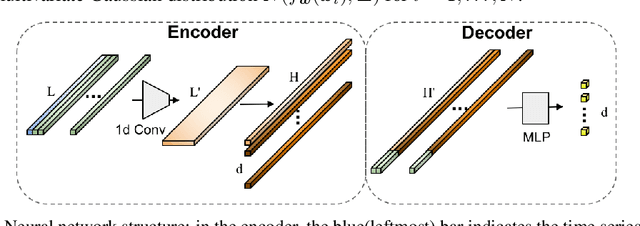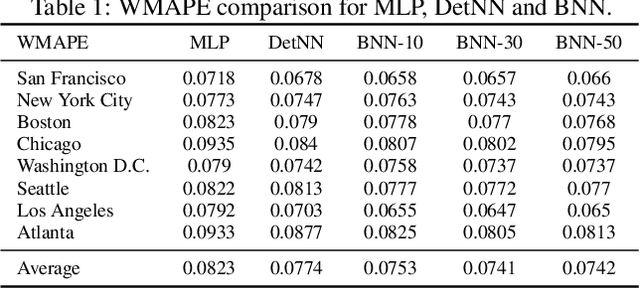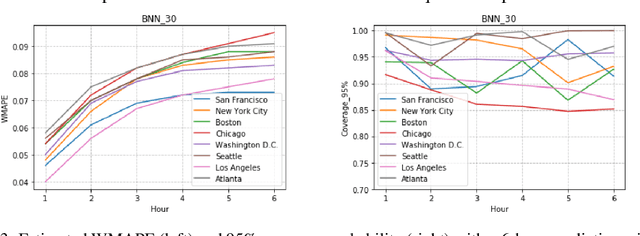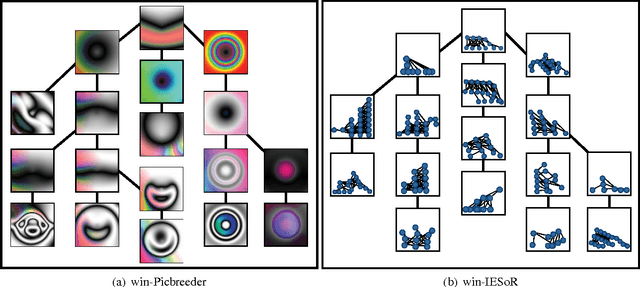Paul Szerlip
Applying SVGD to Bayesian Neural Networks for Cyclical Time-Series Prediction and Inference
Jan 17, 2019



Abstract:A regression-based BNN model is proposed to predict spatiotemporal quantities like hourly rider demand with calibrated uncertainties. The main contributions of this paper are (i) A feed-forward deterministic neural network (DetNN) architecture that predicts cyclical time series data with sensitivity to anomalous forecasting events; (ii) A Bayesian framework applying SVGD to train large neural networks for such tasks, capable of producing time series predictions as well as measures of uncertainty surrounding the predictions. Experiments show that the proposed BNN reduces average estimation error by 10% across 8 U.S. cities compared to a fine-tuned multilayer perceptron (MLP), and 4% better than the same network architecture trained without SVGD.
Pyro: Deep Universal Probabilistic Programming
Oct 18, 2018


Abstract:Pyro is a probabilistic programming language built on Python as a platform for developing advanced probabilistic models in AI research. To scale to large datasets and high-dimensional models, Pyro uses stochastic variational inference algorithms and probability distributions built on top of PyTorch, a modern GPU-accelerated deep learning framework. To accommodate complex or model-specific algorithmic behavior, Pyro leverages Poutine, a library of composable building blocks for modifying the behavior of probabilistic programs.
A Proposed Infrastructure for Adding Online Interaction to Any Evolutionary Domain
Jul 11, 2014
Abstract:To address the difficulty of creating online collaborative evolutionary systems, this paper presents a new prototype library called Worldwide Infrastructure for Neuroevolution (WIN) and its accompanying site WIN Online (http://winark.org/). The WIN library is a collection of software packages built on top of Node.js that reduce the complexity of creating fully persistent, online, and interactive (or automated) evolutionary platforms around any domain. WIN Online is the public interface for WIN, providing an online collection of domains built with the WIN library that lets novice and expert users browse and meaningfully contribute to ongoing experiments. The long term goal of WIN is to make it trivial to connect any platform to the world, providing both a stream of online users, and archives of data and discoveries for later extension by humans or computers.
 Add to Chrome
Add to Chrome Add to Firefox
Add to Firefox Add to Edge
Add to Edge